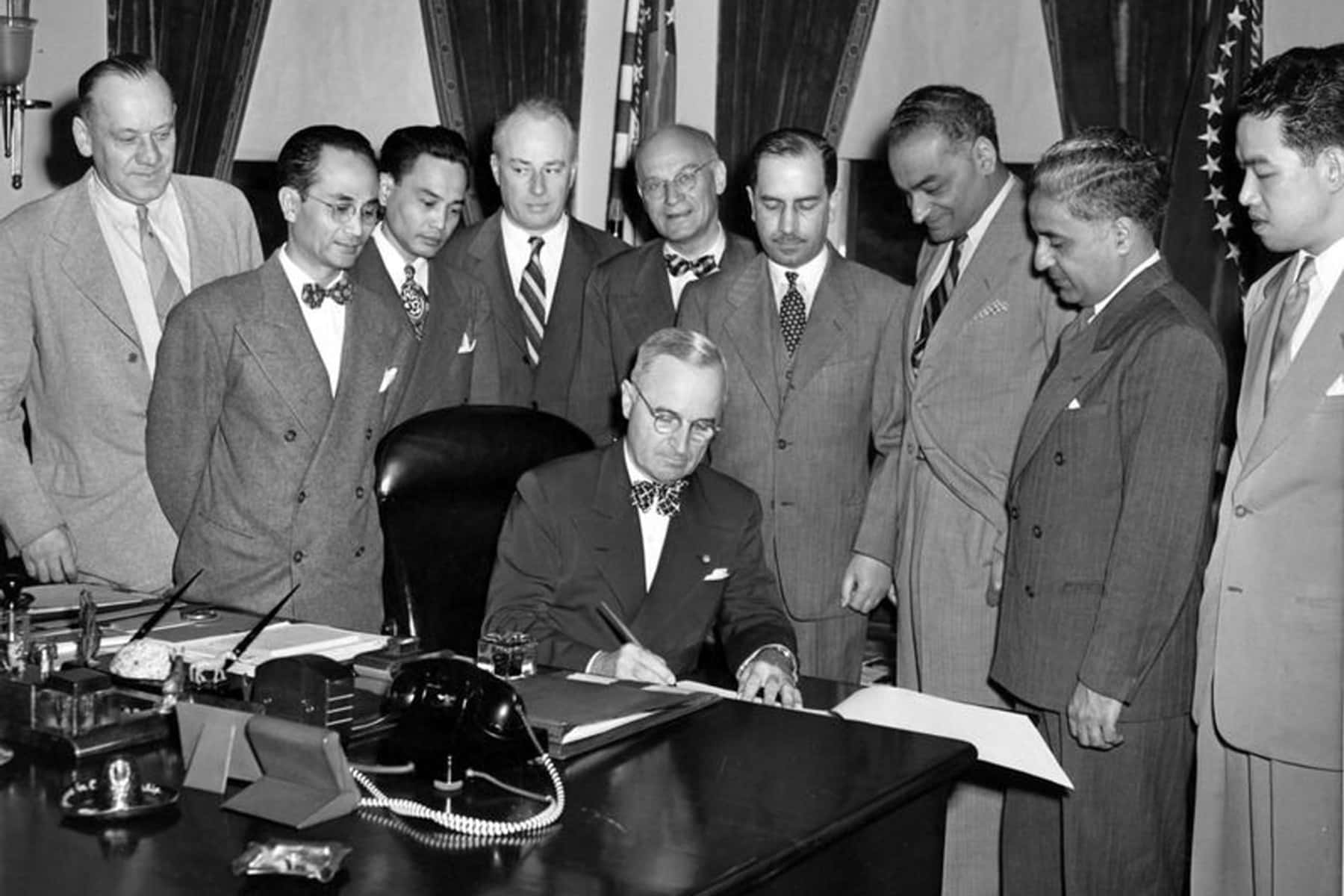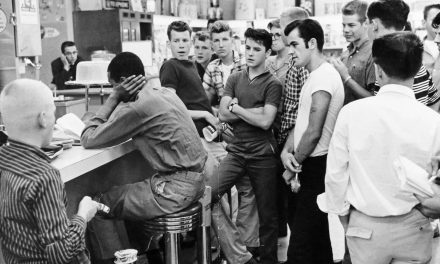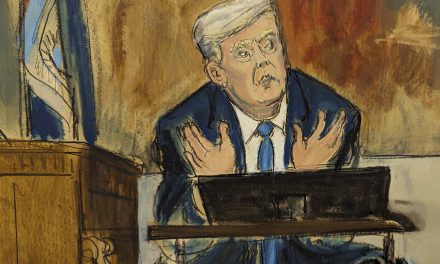
America needs to define a consistent, honest and public position on foreign aid and foreign interventions. If we fail to do so, we will continue to produce disasters that have long-term consequences not only for the countries with whom we’ve interfered but also here in the United States.
Modern U.S. “foreign aid” policy really began in a big way after World War II with the Marshall Plan, which helped rebuild Europe after the war. Germany was a huge recipient of that aid and it helped turn that nation from a renegade (although defeated) fascist empire into a modern liberal democracy.
With our aid, Germany rebooted their national healthcare program and wrote a constitutional provision requiring all corporations with more than 500 employees to have fully a third, and all companies over 2000 employees half, of their Board of Directors’ seats filled by union representatives.
During that time, President Harry Truman was trying to launch a single-payer healthcare system and promote unions; Republicans shot down both efforts, and when they seized control of Congress for 2 years during his presidency even passed — over his veto — the brutal Taft-Hartley Act that enables states to declare themselves “Right to Work for Less” regions, essentially gutting the ability of unions in those states to both represent all their members and remain financially viable.
There is a debate to this day about whether Germany took the extraordinarily pro-union and pro-universal-healthcare positions they did because Truman was whispering in their ear, hoping to have a “proof” for the American people that his proposed policies could work, of if they just decided on their own it was best.
Nonetheless, we gave them assistance that did not have a lot of strings or conditions and let them rebuild their own steel mills and cement plants so they could have German companies rebuild Germany and, in the process, the German economy. It was pretty much the opposite of what we did in Afghanistan and Iraq, where virtually all the money went to well-connected U.S. contractors like Dick Cheney’s nearly-bankrupt Haliburton, making Cheney fabulously rich, producing billionaires here, and leaving both those nations drained as we withdraw.
In the years immediately after the Marshall Plan was put into place, our foreign involvements were driven as much by the CIA, giant multinational corporations and rightwing ideologues as it was with a eye to helping foreign nations.
When Mohammed Mosaddeq came to power in Iran in 1951, for example, he began throwing out the foreign oil companies, declaring Iran’s oil was its own asset and should be drilled, used and sold externally purely for the benefit of Iran and Iranians. He said he was going to use his oil revenue for healthcare and education. This provoked the U.S. CIA and British Intelligence services to engineer the August 19, 1953 overthrow of Mossadeq, bringing the western oil company’s favorite stooge, The Shah, to power. Within a year he gave more than 40 percent of Iran’s oil fields to American oil companies, draining both oil and trillions in cash out of his country. We all know how badly that turned out but it made a few American families and oil companies fabulously rich.
During the 1960 election, Jack Kennedy was beating up Vice President Richard Nixon badly for his handling of the “Cuba crisis”; a year earlier Castro had overthrown the U.S. puppet Batista government and thrown the U.S. mafia out of Havana. Vice President Nixon, with the help of major mafia figures and Cuban expats, put together an “October Surprise” invasion plan against Castro for the fall of 1960, although he ultimately could not pull it off and Kennedy won the election. Almost two years later Kennedy learned that the ragtag army of Cuban refugees Nixon had put together was still planning to assault the island and reluctantly authorized the Bay of Pigs disaster.
I spent many hours on multiple occasions meeting with Harry Enrique Ruiz-Williams, one of the invasion’s leaders, for a book Lamar Waldron and I wrote titled Legacy of Secrecy. Harry told me about a meeting he attended in the White House with Bobby Kennedy a few months after JFK had been assassinated.
Bobby had put together his own off-the-shelf operation to assassinate Castro, with the covert cooperation of the head of Cuba’s military, General Juan Almeida, and wanted to go ahead with another coup attempt. Johnson reacted with fury and obscenity, saying he wanted nothing to do with those Cubans and would make his “stand against communism” as far away from the Northern Hemisphere as possible. Vietnam sounded good to him, he told them, and it would get the Republican communism-hawks off his back. That did not work out so well, either.
We engaged in similarly disastrous covert efforts in Chile and Argentina in 1973 and 1976 respectively, in both cases overthrowing elected “left wing” governments that were working to provide their people with a basic social safety net including programs similar to Social Security, Medicare For All, free college and guarantees of unionization. American companies like Anaconda, International Telephone & Telegraph, and Kennicott were, the U.S. State Department said, enthusiastic helpers in the coups. Soon general Pinochet was throwing protesters out of helicopters to their deaths and when I was in Argentina around 2000 about every other house in the suburban neighborhood I was staying in had furniture or televisions in their front yards for sale because the hyperinflation was so devastating their economy.
In the 1980s Reagan picked up that ball to overthrow “socialist” governments coming to power or attempting to come to power in Nicaragua, Honduras and El Salvador. We sent rightwing terrorists weapons and “advisors,” and helped them form death squads – particularly in El Salvador.
As one of the better historical sites chronicling that time notes: “In the aftermath of the wars in El Salvador and Guatemala, truth commissions determined that state security forces and associated rightist paramilitary groups were responsible for 85% of assassinations and murders in El Salvador, and 93% in Guatemala, while leftist rebels were responsible for 5% in El Salvador and 3% in Guatemala.” The legacy of Reagan’s illegal efforts in the 1980s is continued turmoil and instability in that region, which keeps producing refugees who end up at our southern border seeking asylum.
For almost 30 years prior to 1986 we supported the insanely corrupt Duvalier family’s iron-fisted and kleptocratic rule of Haiti. When they were overthrown and a progressive priest preaching “liberation theology,” Jean-Bertrand Aristide, came to power and accepted $2 billion in oil and financial aid from Venezuela, the U.S .cut off all aid, leading to his overthrow (twice) and directly to today’s disaster. When I was working in the international relief field and visited Haiti (twice) a senior government official solicited a bribe from me, forcing us to drop plans to work in that country.
As reporter Greg Palast noted, “In 2004, a group of murderous gangsters who called themselves The Cannibals led an insurrection against Haiti’s first democratically elected President, Jean-Bertrand Aristide. U.S. President George W. Bush immediately sided with The Cannibals, now renamed, more palatably, ‘The National Revolutionary Front for the Liberation of Haiti.’” Another disastrous move by the U.S .that haunts us to this day.
In 2002 it was Iraq, oil company CEO and then-VP Dick Cheney famously pointed out, that had “the world’s second largest oil reserves, second only to Saudi Arabia,” making that country a sitting duck for Bush family and U.S. oil industry predation. In 1999, oil company CEO and Texas Governor George W. Bush told writer Mickey Herskowitz, who Bush’s family had hired to ghost-write Bush’s autobiography A Charge To Keep, that if he was elected president the next year invading Iraq and becoming “a wartime president” would assure his re-election and the “success,” presumably, of his oft-declared desire to privatize Social Security and end other government welfare programs.
This year we are supposed to be finally pulling out of Afghanistan, where Reagan intervened in the 1980s, funneling money to an obscure group called the Mujahedeen whose numbers included a fellow named Osama Bin Laden. With U.S. help, they succeeded in evicting the Soviet Union and Bin Laden forged an alliance with the new Afghan government, the Taliban.
After 9/11, the Taliban’s leader, Mullah Omar, offered to arrest Bin Laden and send him to a third country for trial, but President Bush thought it would be better for his political future if he used Bin Laden as an excuse to invade the second poorest country in the world. At the time, the entire country’s annual GDP was just a bit over $2 billion (less than the cost of a bridge in the US), a wealth of around $114 per person and an average income of less than $500 per family per year.
We could have simply given them a few billion in exchange for giving us Bin Laden, building girls’ schools and liberalizing the country, and saved thousands of American lives and over $2 trillion in cash that could have ended all student debt in America. But Bush might not have won re-election in 2004.
There are more examples, but I will stop here for the moment. It’s enough to say that we need as serious an examination of our foreign aid and policy history as we do our history of the genocide of Native Americans and enslavement of African Americans. Given the crises America is facing, now should be a time for sober reflection and reevaluation.
If we cannot figure out a way to be a force for good in the world, it is time for us to close down many of our 800+ foreign military bases and operations and spend some time and money rebuilding this country that has been so badly trashed by 40 years of Reaganomics.
Library of Congress
© Thom Hartmann, used with permission. Originally published on The Hartmann Report as Can America Go from Empire to “Good Neighbor?”
Subscribe to The Hartmann Report directly and read the latest views about U.S politics and other fascinating subjects seven days a week.














